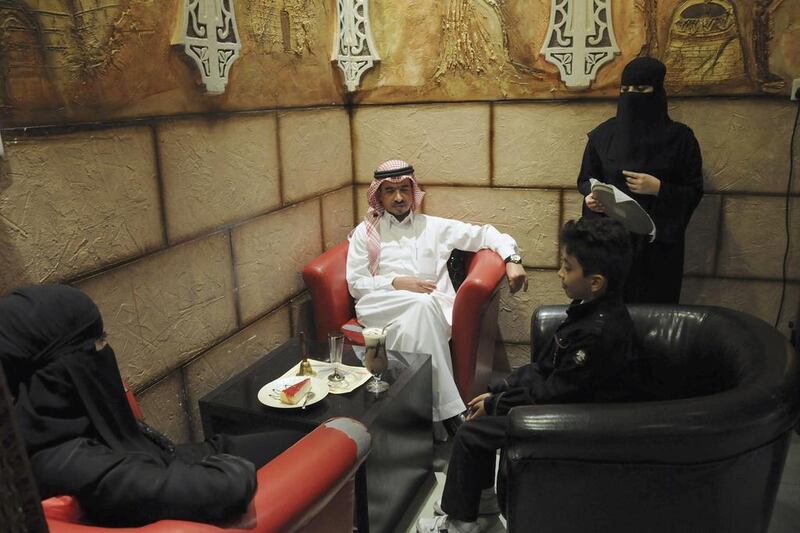Jeddah // Austerity is on everyone’s mind in Saudi Arabia, according to one of the kingdom’s leading analysts.
“The politics of waste must end – they have to,” said Khaled Al Maeena, the former editor in chief of Saudi Arabia’s leading English newspaper, Arab News.
While Mr Al Maeena, considered to have been close to two preceding kings and the current King Salman, may be exceptionally candid, the country’s citizenry is becoming increasingly vocal about the new economic realities as lower oil prices result in reduced revenue from hydrocarbon sales for the country.
“It was a Gulf phenomenon of wasting – money was flowing and there was no accountability,” he said. “The shock has come. We have to wake up, especially the people who are not working. We have to start doing things on our own, depend on our own selves. We have to get up and work, really work hard – produce in factories; clean up our own places.”
Of the 4.4 million jobs created in the 2003 through 2013 decade of booming oil prices and prosperity, about 1.7 million, 39 per cent, were taken by Saudis, according to the McKinsey Global Institute. The remaining 61 per cent of these jobs were performed by foreign workers, “the vast majority of whom are on fixed, short-term contracts”, says McKinsey. These workers and their families constitute a third of the country’s population of 28 million, it said, while their proportionate contribution to the labour force is substantially more.
While youth unemployment for Saudis between the ages of 16 and 29 is at about 29 per cent, foreign workers on temporary contracts constitute more than half the labour force, data from the Saudi ministry of economy and planning shows. And, they are “paid considerably less than Saudi nationals”, across the board, said the institute.
“For years it has been a free ride,” Mr Al Maeena said. “It is time for us to give, give back.”
Last month, the IMF slashed the country’s forecast for growth, saying its economy will grow at just 1.2 per cent this year and 1.9 per cent next year. Both figures are one percentage point below the IMF’s October forecasts for growth in the kingdom.
Saudi Arabia announced an austerity budget in December that should reduce spending by 13 per cent this year. Government spending accounts for about one third of GDP.
Mr Al Maeena said he is also “not at all alarmed by the lowering of the oil prices”.
He said: “I believe there is enough capital flow in the country, between the country’s reserves and the country’s wealthy.”
According to the saudi ministry of economy and planning, the country had eliminated national debt and increased reserve assets to US$732 billion, the equivalent of almost 100 per cent of GDP in 2014.
“We have taken some measures to decrease spending,” said Mr Al Maeena, referring to budgetary and other austerity measures.
The government plans to narrow the deficit to 326bn Saudi riyals (Dh319.2bn) this year, from 367bn riyals last year. The largest chunk of this year’s budget has been allotted to military spending, at 210bn riyals, or 25 per cent of the total budget.
Of last year’s budget, increased military spending, given the conflict in Yemen, accounted for 20bn riyals of last year’s overshoot, said Adel Fakeih, the economy minister.
This is an unfamiliar task for a government that has been running budget surpluses for more than a decade. The IMF estimated that the surpluses would have been consumed in five years, had spending continued in the same way.
The changes – including a rise in fuel and utility prices – have arrived “overnight”, as some citizens put it.
There has also been deepening levels of transparency – and consequent accountability and action – in which social media has played a central role.
Mr Al Maeena told of several instances of action taken based on investigations kicked off by voices on social media. These include action against a school principal for corporal punishment; a director of health summarily transferred, which can be “worse than being fired” in some instances, Mr Al Maeena said; and a previous minister of health who was removed from office within 48 hours of discourteous behaviour during hospital visits .
A “sense of balance” is what Mr Al Maeena would like to see this year, “balance between reality of the [economic] situation and where we are … and to have a happy mix between both of them.”
business@thenational.ae
Follow The National's Business section on Twitter





